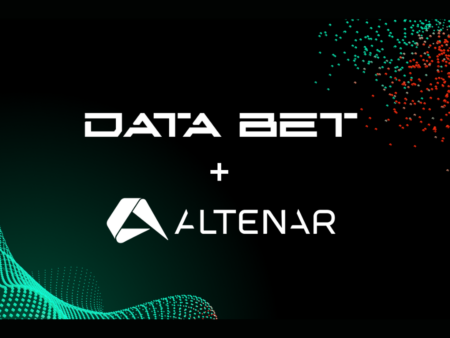The UK’s Advertising Standards Authority (ASA) has made a decisive move against five major advertisers promoting social casino games through misleading ads. The primary platform in question was TikTok, where these advertisers posted paid-for ads implying users could win real-world money or tangible prizes. However, this claim was determined to be entirely false, leading to a ban on the ads.
The advertisers affected by this ruling include:
- Dataverse, trading as Gamehaus
- Huuuge Global, trading as Billionaire Casino
- Mobee Co, trading as Ignite Classic Slots
- SpinX Games
- Zeroo Gravity Games, trading as Cash Tornado
Social Casino Games: What Are They?
Social casino games are digital entertainment apps that simulate the experience of gambling on popular games like slot machines, poker, and blackjack. Unlike traditional online casino platforms, no real money is wagered or won in social casino games. While players can purchase in-game currency to continue playing, they cannot cash out any winnings as these games do not offer real-world monetary rewards.
This distinction is critical, as it separates social casino games from regulated gambling activities. However, the failure of these advertisers to clarify this in their ads led to the ASA’s intervention.
Misleading Advertising Practices Identified by ASA
The ASA’s investigation found that the ads for these social casino games violated key advertising guidelines. Specifically, the ads on TikTok led users to believe they could win tangible prizes or real money, even though this was not the case.
Key Findings of the ASA Investigation:
- Implied real-world rewards: The ads suggested players could win cash or tangible items.
- Lack of clarity: None of the ads made it clear that the games were purely virtual and that no real-world monetary rewards were involved.
- Platform targeting: TikTok, being a platform with a younger demographic, raised concerns about the potential for misleading content being consumed by vulnerable users, particularly young people.
This breach of advertising standards is part of the ASA’s broader effort to clamp down on misleading gambling-related ads, as intelligence continues to highlight how certain marketing tactics can confuse or mislead consumers.
The Advertisers’ Responsibility in Addressing Misleading Ads
With this ruling, the five advertisers involved in the case have been required to make immediate adjustments to their advertising practices. They must now:
- Revise their ads to explicitly state that no real money or tangible prizes can be won in their social casino games.
- Ensure future ads comply with the ASA’s stringent guidelines around clarity and transparency, particularly when targeting vulnerable users, such as minors or individuals susceptible to gambling addiction.
Impact on the Advertising Industry
This ruling sends a clear message to the wider advertising and gaming industries that misleading advertising practices will not be tolerated. Companies promoting social casino games and similar products must ensure their messaging is transparent and honest, particularly on platforms like TikTok, which has a large, diverse, and often younger audience base.
Gambling-Like Features in Social Casino Games: A Growing Concern
The ASA’s decision also underscores growing concerns around the use of gambling-like mechanics in games that are not classified as gambling by law. Social casino games often simulate traditional gambling experiences by using slot machines, roulette wheels, and other mechanisms associated with real-world casinos. However, because they do not offer the chance to win real money, they are typically not subject to the same regulations as online gambling platforms.
Despite this legal loophole, the gambling-like mechanics in these games can still trigger addictive behaviors, leading many to argue that these apps should face stricter oversight. The ASA’s action against these misleading ads may signal the start of more comprehensive regulation in this area.
Future Regulatory Challenges
The rapid growth of social gaming and the blurring lines between social casino games and real gambling present significant challenges for regulators. While games like Cash Tornado and Billionaire Casino may not offer real-money gambling, their in-game mechanics closely resemble those of actual gambling. This can create confusion for consumers, especially if the games are marketed in a way that suggests potential real-world rewards.
As such, regulators like the ASA must continue monitoring the industry, ensuring that advertisers uphold transparency in their messaging and that vulnerable populations are not misled into believing these games offer real financial rewards.
TikTok’s Role and Responsibility
Given that TikTok was the platform where these misleading ads appeared, the social media giant also faces increased scrutiny regarding its role in overseeing advertising content. As a platform that attracts a significant number of young users, TikTok must work closely with regulators to ensure that ads on its platform meet advertising standards and do not promote potentially harmful products or services misleadingly.
This case highlights the need for platform accountability, where companies like TikTok must implement robust content vetting processes for paid ads, particularly those related to gambling or gambling-like activities.
Conclusion: Ensuring Transparency in Social Casino Game Advertising
The ruling against these five advertisers marks a critical moment in the ongoing regulation of social casino games and their marketing. By banning these misleading ads, the ASA has reinforced the importance of clear and transparent advertising, especially in an industry where vulnerable users could be easily misled.
FAQs About ASA’s Ruling Against Social Casino Game Ads
1. What prompted the ASA to ban the ads for social casino games?
The ASA banned the ads due to misleading content that implied users could win real-world money or tangible prizes. This claim was false, as social casino games do not offer any real-money rewards.
2. Which advertisers were affected by the ASA’s ruling?
The five advertisers affected are:
- Dataverse (trading as Gamehaus)
- Huuuge Global (trading as Billionaire Casino)
- Mobee Co (trading as Ignite Classic Slots)
- SpinX Games
- Zeroo Gravity Games (trading as Cash Tornado)
3. What are social casino games?
Social casino games are digital apps that simulate popular gambling activities like slot machines and poker. However, unlike real casino games, they do not offer real-money rewards or prizes.
4. What did the ads for these social casino games falsely claim?
The ads falsely implied that players could win real-world cash or tangible prizes by playing the games, which was not true.
5. Why is the ASA concerned about misleading ads for social casino games?
The ASA is concerned because these misleading ads can confuse consumers, especially vulnerable groups such as young people, who may believe they can win real-world money.
6. What must the advertisers do to comply with the ASA’s standards?
The advertisers must revise their ads to make it clear that social casino games do not offer real-world money or prizes. They also need to ensure future ads follow ASA guidelines.
7. How does this ruling impact the broader advertising industry?
This ruling sets a precedent for stricter scrutiny in the advertising of social casino games. It emphasizes the need for transparency and honest representation in marketing, especially on platforms like TikTok.


















